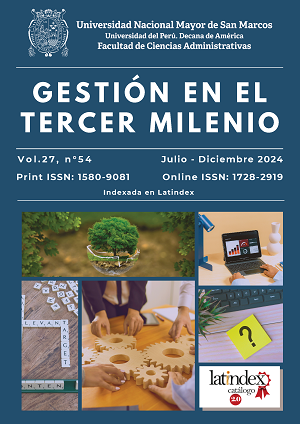Training and human capital challenges for diplomatic foreign services in the 21st century
DOI:
https://doi.org/10.15381/gtm.v27i54.29034Keywords:
human capital, diplomacy, citizen diplomacy, foreign serviceAbstract
The paper analyzes the training and challenges of human capital in Foreign Services, given the new challenges posed by globalization, new actors on the international scene, citizen diplomacy, technological and digital transformation, and cybersecurity. Diplomacy must adapt to the emergence of citizen diplomacy and new technologies in a global context. From a qualitative documentary review of academic and government sources from the last 15 years, it is observed that academic training institutes of Latin American foreign services share common criteria for the selection of human capital. It is recommended that foreign services training centers offer updated teaching, in line with the development of new technologies and digital transformation. The continuous professionalization of Foreign Services, through these training centers, would allow the countries of the region to develop and implement effective strategies to face the new sectors of the international and global environment.
Downloads
Published
Issue
Section
License
Copyright (c) 2024 Noela María Eufemia Pantoja Crespo

This work is licensed under a Creative Commons Attribution 4.0 International License.
THE AUTHORS RETAIN THEIR RIGHTS:
(a) The authors retain their trademark and patent rights, and also over any process or procedure described in the article.
(b) The authors retain the right to share, copy, distribute, execute and publicly communicate the article published in Gestión en el Tercer Milenio journal (for example, place it in an institutional repository or publish it in a book), with acknowledgment of its initial publication in the Gestión en el Tercer Milenio.
(c) Authors retain the right to make a subsequent publication of their work, to use the article or any part of it (for example: a compilation of their work, lecture notes, thesis, or for a book), provided that they indicate the source. of publication (authors of the work, magazine, volume, number and date).






